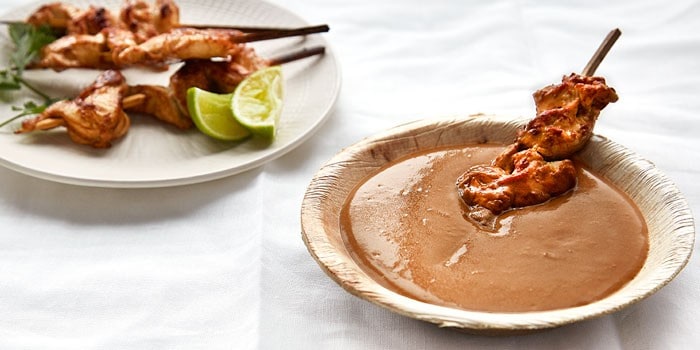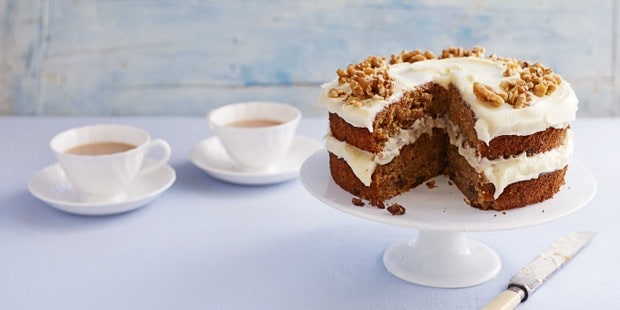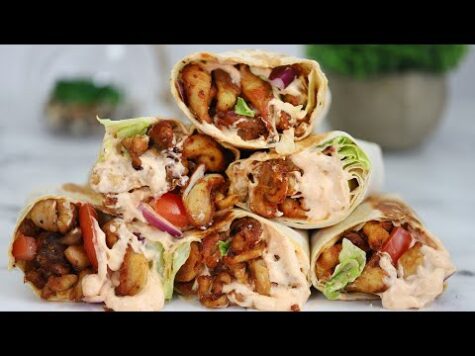With hydrating water, muscle-healing protein, refuelling sugar and bone-healthy calcium, milk is a great choice if you are upping your activity levels. A warm glass around bedtime may also help you drift off and get the rest you need – all thanks to its slow-digesting casein and its ability to support sleep-inducing melatonin.
Fitness benefits
Chocolate milk is an age-old favourite for endurance athletes. It might sound unhealthy, but it works because it contains the two essential ingredients you need after a workout: carbs to give you energy and protein to repair muscles. A homemade fruit milkshake or fruit smoothie does the trick too.
Recipes to try
Super berry smoothie
Cranberry and raspberry smoothie
Avocado and strawberry smoothie
2. Dried fruit
High in natural sugars, dried fruits (such as apricots, raisins and mango) provide a concentrated source of carbohydrate, making them a great energy booster. You’ll also get a dose of fibre as well as vitamins and minerals, including potassium, with every mouthful.
Fitness benefits
If you can’t stomach energy gels, dried fruit makes a great natural substitute because they’re packed with carbs to give you energy. Aim for one or two servings before a race and two to three servings for every hour of running (one serving is roughly three dried figs).
More like this
As with all foods, if competing, experiment with dried fruit during training rather than on competition day!
Recipes to try
Dried fruit energy nuggets
Choc orange energy boosters
Energy balls
3. Broccoli (and other green veg)
With free-radical-busting antioxidants, digestion-promoting fibre, plus a whole army of vitamins and minerals, broccoli along with kale, spinach and green cabbage are some of the most nutrient-dense foods you’ll find. They’re also a great source of folate that is thought to be good for heart health and for women hoping to conceive.
Fitness benefits
When it comes to bone-building calcium, plant-based foods such as broccoli and kale offer a healthy dose and can be a good alternative to dairy products. Low calcium levels make you more vulnerable to stress fractures, particularly if you do endurance sports, so make sure you get enough calcium in your diet – the NHS recommends 700mg for adults a day.
Recipes to try
Ginger, sesame, chilli prawn & broccoli stir-fry
Chicken, kale & mushroom pot pie
Creamy garlic & lemon spinach salmon
4. Sweet potatoes
Mash, bake or make into pâté – sweet potatoes are versatile, count as one of your 5-a-day and provide disease-fighting beta-carotene, iron, fibre and vitamin C.
Fitness benefits
Sweet potatoes are a good addition to a carb-loading diet and especially before a long race, such as a half marathon. They are also high in the electrolyte potassium, which can help ward off muscle cramps during exercise.
Recipes to try
Sweet potato & peanut curry
Crispy cod wedges with sweet potato wedges
5. Bananas
Bananas are the perfect fitness food: compact, portable, soft to chew, and packed with nutrients. Don’t be too quick to bin the peel however – Taiwanese nutritionists found the peel is not only packed with even more potassium, but mood-boosting serotonin and eye-protecting lutein, too. Try the whole banana, peel and all, in a smoothie.
Fitness benefits
Bananas are slightly higher in energy than other fruits, but the calories come mainly from carbohydrate, which makes them brilliant for refuelling before, during or after a workout. They’re also packed with potassium, which may help with muscle cramps during exercise.
Recipes to try
Mango & banana smoothie
Malt loaf with banana & honey
Peanut butter & banana on toast
6. Tomatoes
As well as being loaded with vitamin C, tomatoes contain a powerful antioxidant called lycopene, which gives the fruit their lovely letterbox-red colour. Lycopene has been making headlines for a number of years as a potential nutrient to help prevent prostate cancer in men.
Fitness benefits
Tomatoes may help with a weight-loss programme: the fruit has been linked with natural weight management hormones in the body such as leptin, which helps regulate metabolic rate and appetite.
Recipes to try
Tomato & marscarpone risotto
Tomato penne with avocado
Tomato & spinach kitchari
7. Brazil nuts
All nuts are packed with vitamins, minerals and fibre, but Brazil nuts are one of the few good sources of selenium, a mineral and micronutrient which helps to maintain a healthy immune system and may help protect against heart disease and cancer. The heart-healthy fats in nuts may help manage cholesterol levels, but be wary: they can be high in calories if you nibble too many.
Fitness benefits
Upping your exercise and activity levels can make you hungry so it’s important to choose snack foods that pack in nutrients and curb hunger pangs. Nuts fill you up far better than other snack foods so are a wise choice to beat the 4pm snack attack.
Recipes to try
Brazil nut banana bread
Brazil nut burritos
8. Blueberries
Blueberries earned their ‘superfood’ status a few years ago, thanks to their high level of free radical-beating antioxidants. Free radicals are thought to travel around your body damaging cells, causing disease, and triggering signs of premature aging. Berries are often lower in calories than other fruits, too.
Fitness benefits
Like dried fruit, fresh fruit is good to eat during and after exercise since it contains natural sugars, which provide energy to muscles in the quickest way possible. Frozen blueberries (often far cheaper than fresh) are brilliant whizzed up into a post-exercise smoothie to replenish your muscles’ glycogen (energy) stores.
Recipes to try
Cinnamon porridge with banana & berries
Banana & blueberry muffins
Apple & blueberry bircher
9. Salmon
Salmon is a good source of omega-3, a fatty acid that’s believed to keep your heart healthy and slow down the effects of memory loss.
Fitness benefits
Pick protein for your post-exercise meal. Protein rebuilds and repairs muscles so is the nutrient to fill up on after a workout. Protein-packed salmon is a great choice, as well as eggs and lean meats.
Recipes to try
Creamy salmon, leek & potato bake
Pasta with salmon & peas
Teriyaki salmon
10. Cocoa
Cocoa is especially nutritious, rich in magnesium, antioxidants and amino acids. Studies suggest it may improve vascular function, reduce exercise-induced oxidative stress and alter fat and carb use during exercise. To get the full benefits you need to get as close to the whole bean as possible. Cocoa nibs or powder are best – sprinkle on yogurt, fruit or add to granola.
Fitness benefits
One of the best things about doing regular exercise is that it allows you a little more leeway when it comes to delicious foods. If you’re after a fix, pick dark chocolate (70% cocoa solids or above) rather than other calorie-laden options.
Recipes to try
Cocoa & cherry oat bake
Chocolate & chia pudding
Gluten-free brownies
For more exercise nutrition tips read…
Sports nutrition
Race day foods
Marathon nutrition
Eat like an athlete
Have you got a tried and tested fitness food that works for you? Share your favourites in the comments below….
Katie Hiscock is a fitness writer with diplomas in personal training and sports massage therapy. With an interest in sports nutrition, antenatal exercise and injury prevention, she works as a therapist for Brighton & Hove Albion.
All health content on bbcgoodfood.com is provided for general information only, and should not be treated as a substitute for the medical advice of your own doctor or any other health care professional. If you have any concerns about your general health, you should contact your local health care provider. See our website terms and conditions for more information.





